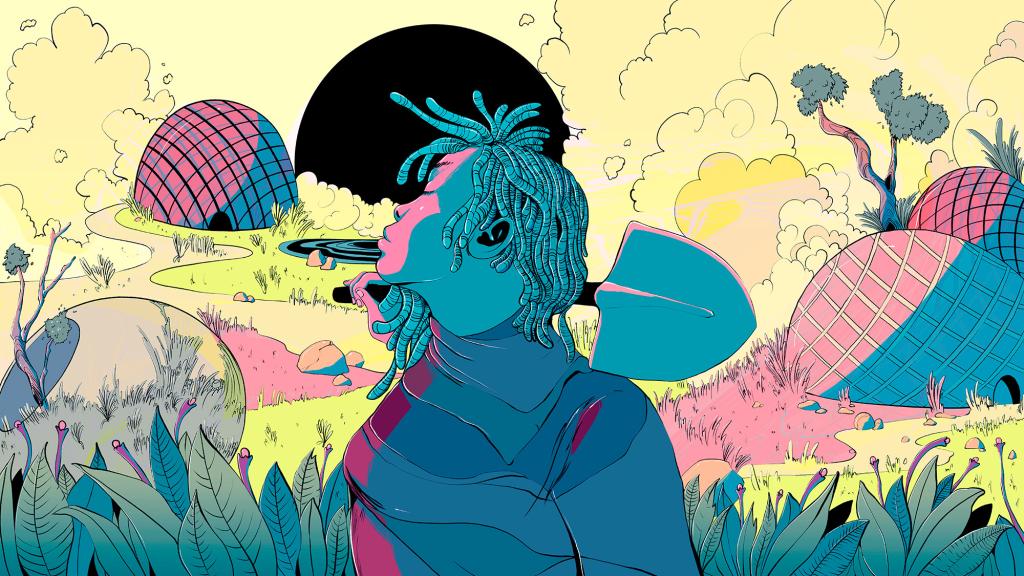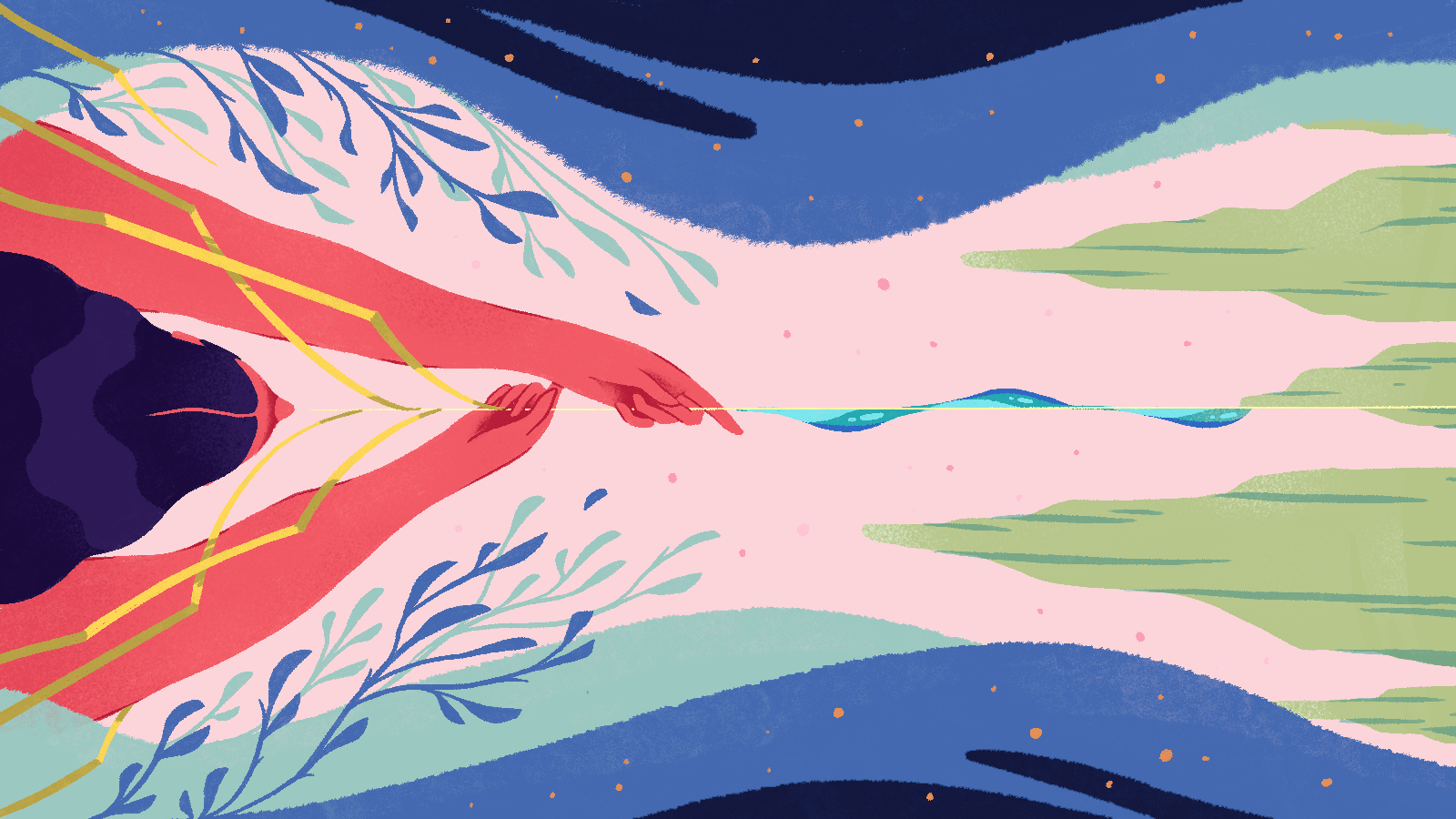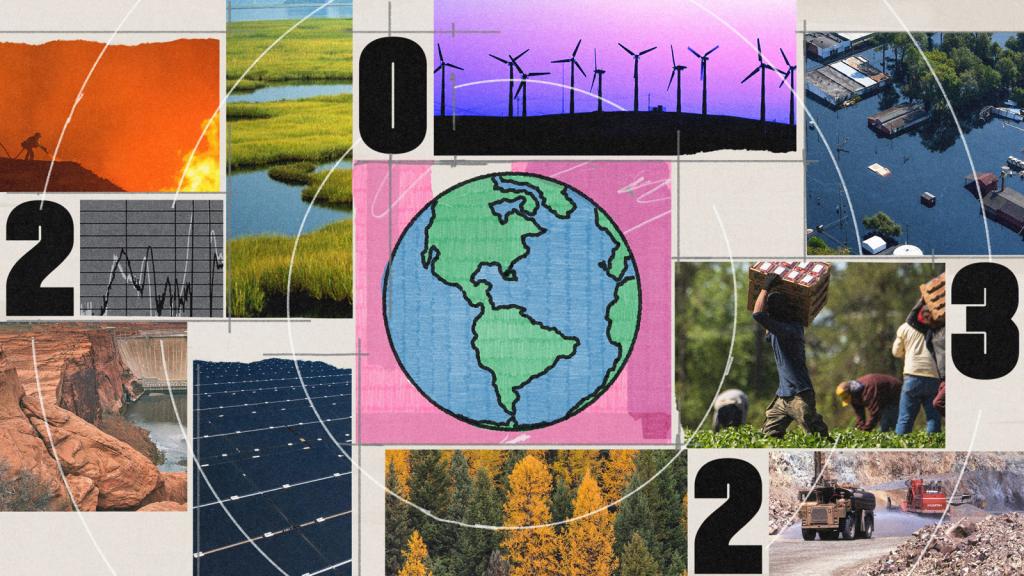As of May 6, 2022, our submissions portal is closed. Thank you to everyone who submitted and to everyone who got the word out!
Want more climate fiction? Sign up for Imagine 2200 email updates!
Fix, Grist’s solutions lab, is excited to announce that we are accepting submissions for our second annual climate fiction short-story contest, Imagine 2200: Climate Fiction for Future Ancestors. There is no cost to enter.
Fix was founded on the simple premise that promising solutions to the climate crisis exist — they just haven’t gained enough momentum to take off. With Imagine 2200, we’re inviting writers to envision a future in which those solutions soar, and our world is radically better. Our hope is that this fiction contest, and the collection of stories we publish, will be part of an uprising of imagination — something we believe is necessary to get us out of this climate crisis.
Ready to get inspired? Check out the winning stories from the inaugural year of Imagine 2200.
This initiative celebrates short stories rooted in hope, justice, creative solutions, and cultural authenticity, while amplifying voices that have been, and continue to be, affected by systems of oppression.
Imagine 2200 is inspired and informed by literary movements like Afrofuturism and Indigenous, Latinx, Asian, disabled, feminist, and queer futurisms, along with hopepunk and solarpunk. We hope writers look to these genres for inspiration, and we urge writers within these communities to submit stories. A truly clean, green, just future is about so much more than slashing carbon emissions. It means upending the status quo of colonialism, extraction, and oppression. We’re eager to share your visions for achieving that.
Find everything you need to submit a story here
Submissions for year two are now open. We’re looking for stories of 3,000 to 5,000 words that envision the next 180 years of climate progress — roughly seven generations. The winning writer will be awarded $3,000, with the second- and third-place winners receiving $2,000 and $1,000, respectively. An additional nine finalists will each receive $300. Winners and finalists will be published in Fall 2022 in an immersive collection on Fix’s website and celebrated during a virtual event.
This year, stories will be judged by a panel of literary experts, including acclaimed authors and editors Grace L. Dillon, Arkady Martine, and Sheree Renée Thomas.
Get answers to all of your questions below, or feel free to contact us
We’ve answered some FAQs to explain the concepts that drive this project. If you’re ready to start writing, you can find our submissions portal here. And if you’d like to get in touch, you can reach us at imaginefiction@grist.org.

Writing your story
Q. Can I submit a story longer than 5,000 words?
A. We’re excited that you’re excited, but the submission guidelines are not flexible. Stories need to be between 3,000 and 5,000 words.
Q. Does my story need to be set in the year 2200?
A. Nope! We’d be just as happy to see your visions of amazing, just, and decolonized worlds in 2136 or 2098. We just want to encourage writers to think well beyond our present moment and with a sense of expansive possibility.
Q. Can my story include supernatural or fantastical elements?
A. Sure! We will judge stories in part based on the rigor of environmental, scientific, historical, and cultural backgrounds the writer puts into them. We’re open to magical realism, spiritual elements, and supernatural twists, especially where they’re culturally significant.
Q. TBH, I’m not that hopeful about the future of the planet. Can my story be grimdark and apocalyptic?
A. We get it. The world can seem pretty dark these days. That’s why it’s so important to make space for visions of a future worth fighting for. We at Fix firmly believe in the power of imagination to help set our compass toward a better world. We’re not saying you need to feign optimism, but bear in mind that hope is one of the core elements we’ll be reading for. And hope takes many forms. We know that achieving a clean, green, and just future will require the sustained efforts of many people, some conflict, and a whole lot of adaptation. We invite you to show those aspects in your story as well.

Submitting your story
Q. Is there a cost to enter the contest?
A. Zero dollars!
Q. Who can submit? Are there any restrictions on age, geography, etc.?
A. Writers must be at least 18 years old to submit to Imagine 2200. The contest is open to folks anywhere in the world, though stories do need to be written primarily in English.
Q. Can a submission have more than one author?
A. We do accept co-authored stories, provided each author submits the story individually and lists the other author(s) in the submission form. If we select a co-authored story for publication, all authors will be credited and prize money will be divided between them.
Q. Do authors keep the rights to their stories?
A. Grist retains the first serial rights to publish, produce, reproduce, distribute, and market the 12 stories published in the Imagine 2200 collection. All remaining rights will revert to the authors upon publication. If a story is republished elsewhere after the contest, we simply ask for a credit line indicating that the work first appeared in Fix’s Imagine 2200 collection.
Q. OK, I’m in! How do I submit a story, and how can I help spread the word?
A. Woo-hoo! For more complete guidelines and criteria, head to our submissions portal here. If you’d like to receive updates, help get the word out, or have a question we haven’t answered, drop us a note at imaginefiction@grist.org. We can’t wait to read your story!

The Imagine 2200 mission
Q. How did this whole thing get started?
A. In the spring of 2020, Fix brought 28 climate and justice leaders together for a three-day gathering. Through a collective visioning exercise, we charted the next 180 years of climate progress, focusing on achieving a clean, green, and just future by 2200. Together, we visualized a complete societal transformation: a dissolution of political parties and borders. Reparations. The return of land to Indigenous and Black stewardship. Restorative justice replacing prisons. Rights granted to the Earth and non-human kin. Food sovereignty and heirloom seeds triumphing over monoculture farming. An economy built on ecological restoration, mutual aid, and caregiving. The pursuit of reciprocal relationships in all our systems and designs.
Out of our visions grew the idea for a climate-fiction initiative, to lift up more voices in the climate narrative and to breathe life into the ideas we heard. Imagine 2200: Climate Fiction for Future Ancestors launched in 2021. It received 1,100 submissions — read the winning stories in last year’s collection here!
Q. Why fiction? And what is cli-fi, anyway?
A. Fiction gives us an opportunity to envision the world we want, in a way that journalism cannot. Our hope is that the contest will stir your imagination, and that the stories in the Imagine 2200 collection will inspire, delight, and motivate readers to take action to make those worlds a reality.
Although climate fiction dates to the 1960s, the genre has grown increasingly relevant, and popular, in recent years. (In fact, with the state our planet’s in, it’s been posited that any stories that don’t consider the fate of the climate will soon start to look pretty otherworldly.) Fix strives to foster and amplify cli-fi that is hopeful, intersectional, and grounded in justice.



